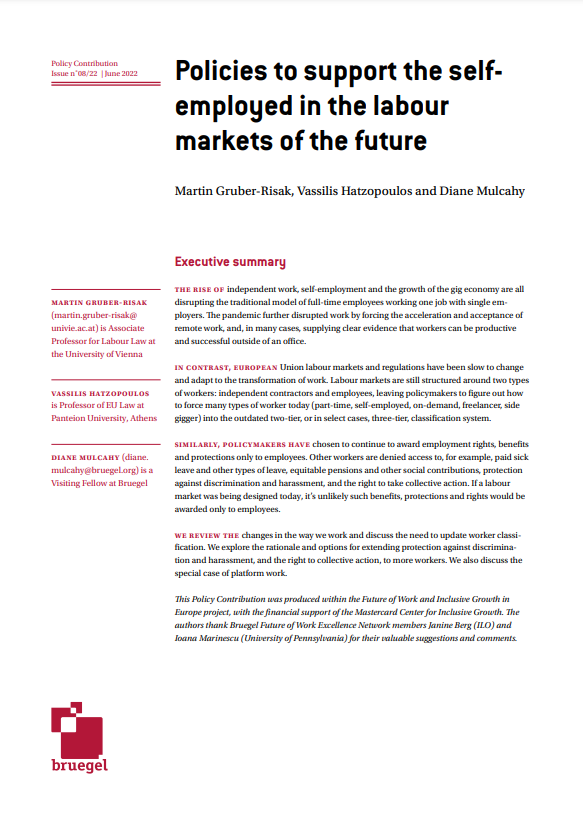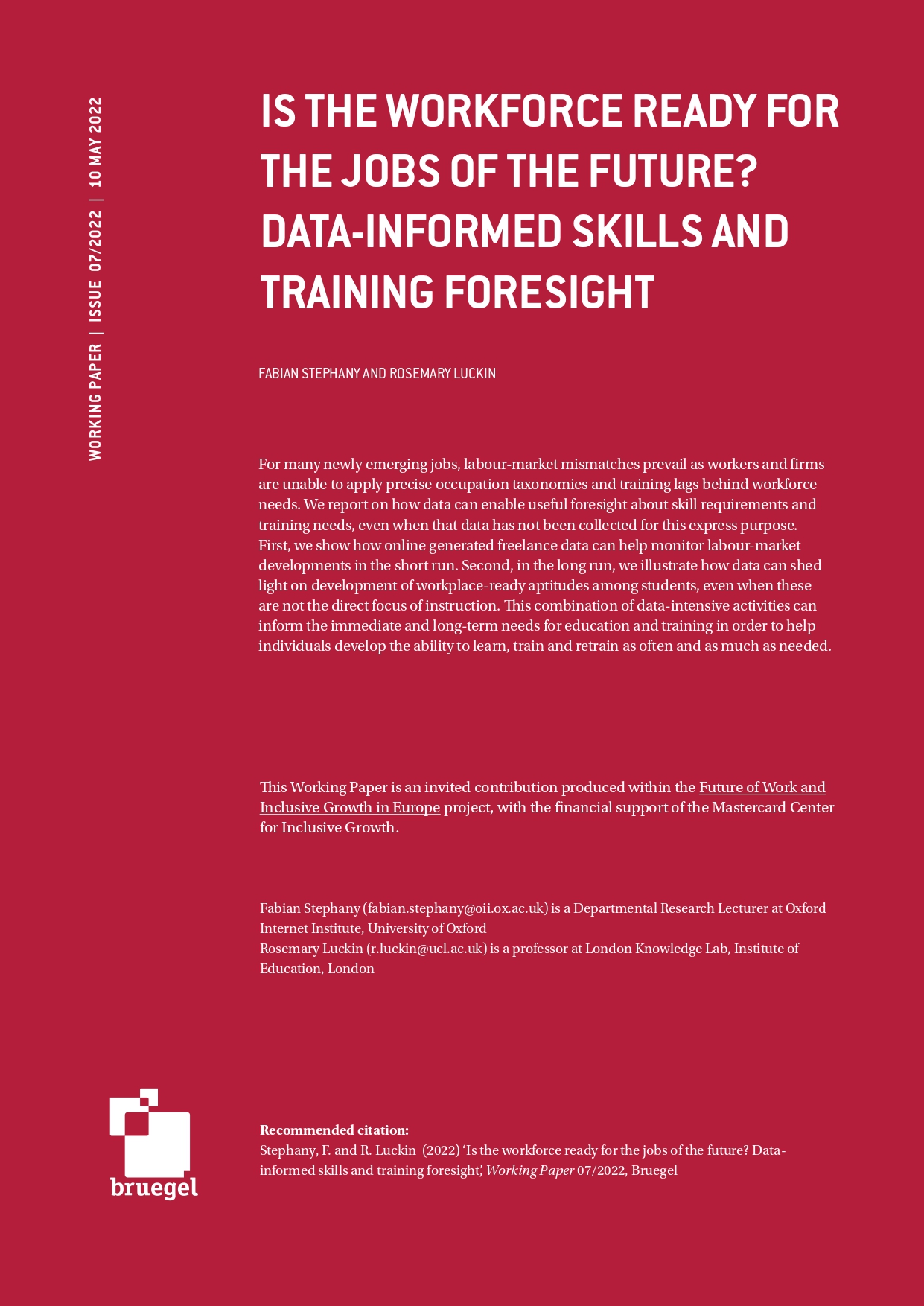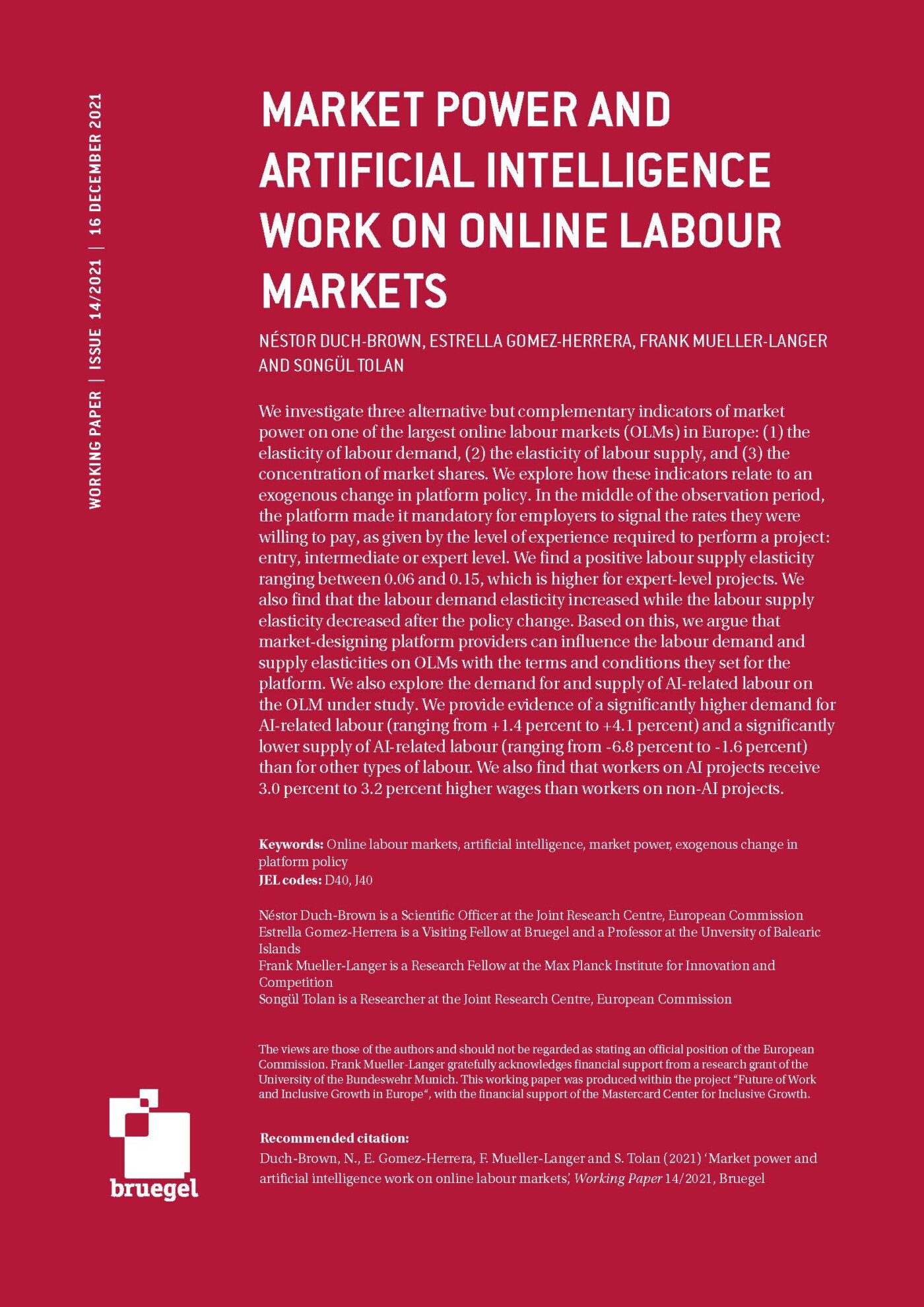Policy Contribution
Policies to support the self-employed in the labour markets of the future
A review of changes in the way we work and discuss the need to update worker classification exploring the rationale and options for extending protection against discrimination and harassment, and the right to collective action, to more workers, also discussing the special case of platform work.
This Policy Contribution was produced within the Future of Work and Inclusive Growth in Europe project, with the financial support of the Mastercard Center for Inclusive Growth. The authors thank Bruegel Future of Work Excellence Network members Janine Berg (ILO) and Ioana Marinescu (University of Pennsylvania) for their valuable suggestions and comments.
The rise of independent work, self-employment and the growth of the gig economy are all disrupting the traditional model of full-time employees working one job with single employers. The pandemic further disrupted work by forcing the acceleration and acceptance of remote work, and, in many cases, supplying clear evidence that workers can be productive and successful outside of an office.
In contrast, European Union labour markets and regulations have been slow to change and adapt to the transformation of work. Labour markets are still structured around two types of workers: independent contractors and employees, leaving policymakers to figure out how to force many types of workers today (part-time, self-employed, on-demand, freelancer, side gigger) into the outdated two-tier, or in select cases, three-tier, classification system.
Similarly, policymakers have chosen to continue to award employment rights, benefits and protections only to employees. Other workers are denied access to, for example, paid sick leave and other types of leave, equitable pensions and other social contributions, protection against discrimination and harassment, and the right to take collective action. If a labour market was being designed today, it’s unlikely such benefits, protections and rights would be awarded only to employees.
We review the changes in the way we work and discuss the need to update worker classification. We explore the rationale and options for extending protection against discrimination and harassment, and the right to collective action, to more workers. We also discuss the special case of platform work.
Recommended citation
Gruber-Risak, M., Hatzopoulos, V. and D.Mulcahy (2022) ‘Policies to support the self-employed in the labour markets of the future’, Policy Contribution 08/2022, Bruegel












